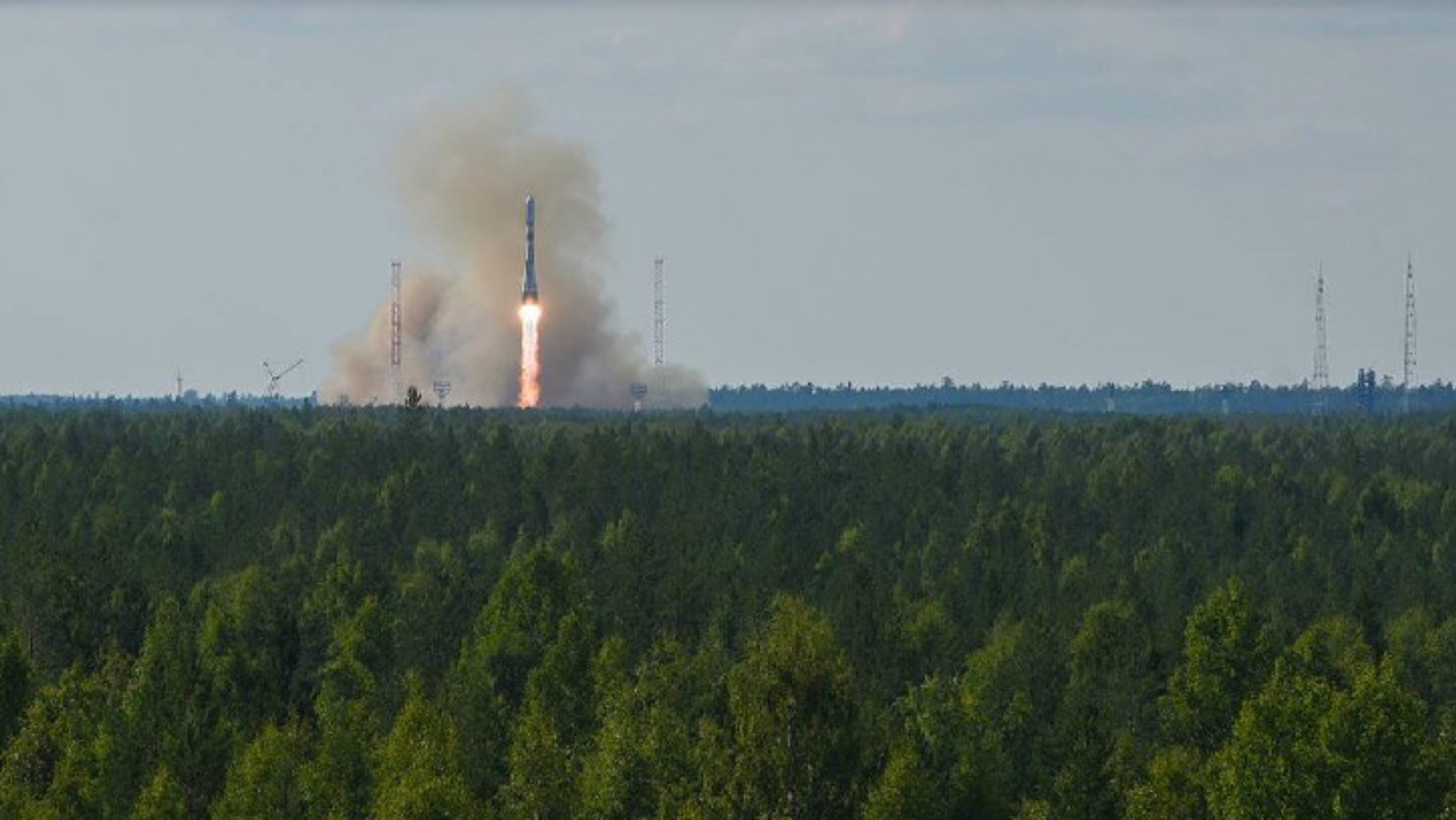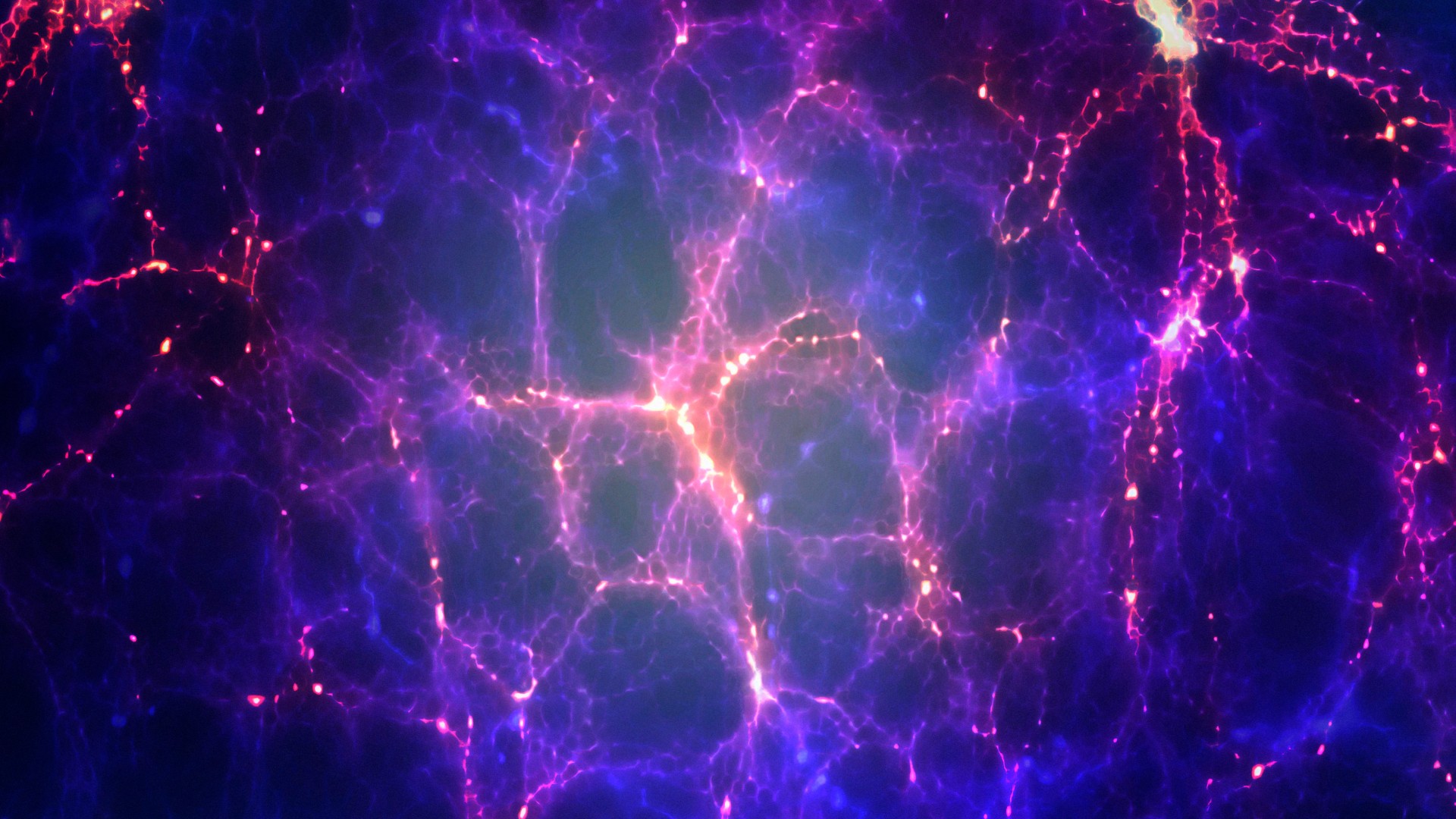A Russian rocket body fell back to Earth near southern Australia on Monday night (Aug. 7), putting on quite a show for observers in the region.
The crashing rocket generated a "fireball and sonic boom that rattled homes across Victoria," 7 News Australia said via X (formerly Twitter) on Tuesday (Aug. 8), referring to the southern state whose capital, Melbourne, is Australia's second-largest city.
The hunk of space junk hadn't been up there long; it was the third stage of a Soyuz rocket that had launched a Glonass navigation satellite earlier that same day, according to astrophysicist and satellite tracker Jonathan McDowell.
Related: 6 types of objects that could cause a space debris apocalypse
What an amazing sight over Richmond 💫 I don't know if #Meteor #Comet or #SpaceJunk #Melbourne pic.twitter.com/8SHbweU2qKAugust 7, 2023
*STATEMENT*We have determined the flashes of light seen across Melbourne skies overnight were likely the remnants of a Russian Soyuz-2 rocket re-entering the Earth’s atmosphere.[More in comments] pic.twitter.com/rmb4B5l4iLAugust 8, 2023
That mission lifted off at 9:20 a.m. EDT (1320 GMT) on Monday from Plesetsk Cosmodrome in northwestern Russian and zoomed toward space on a southeasterly track.

Though earlier thought to be a meteor flying over Melbourne in Australia, now the Australian space agency doubts it is a Russian rocket.#Russia #Australia #Melbourne #Breaking pic.twitter.com/p2DBjiryaNAugust 8, 2023
The Soyuz's third stage ended up reentering Earth's atmosphere southeast of Tasmania, over the open ocean, around 10 a.m. EDT (1400 GMT; midnight Melbourne time), McDowell said.
The crashing rocket body was not the Soyuz's uppermost stage, known as Fregat, by the way; that vehicle continued carrying the Glonass satellite toward its intended orbit. (We would probably consider the fallen body the Soyuz's second stage, but Russian space officials count the rocket's strap-on boosters as its first stage, McDowell noted in another social media post.)
Get the Space.com Newsletter
Breaking space news, the latest updates on rocket launches, skywatching events and more!
The Soyuz stage hit the atmosphere going several kilometers per second, said Michael Brown, an associate professor in the School of Physics and Astronomy at Monash University in Melbourne.
"Space junk reentries are sometimes confused with meteors, which are also spectacular but are usually far shorter events, as they slam into the atmosphere at a much faster speed," Brown said in an emailed statement about Monday's event.
"It is possible that small pieces of the rocket crashed to earth or into the sea, but it's rare for space junk to damage property," he added.
Join our Space Forums to keep talking space on the latest missions, night sky and more! And if you have a news tip, correction or comment, let us know at: community@space.com.

Michael Wall is a Senior Space Writer with Space.com and joined the team in 2010. He primarily covers exoplanets, spaceflight and military space, but has been known to dabble in the space art beat. His book about the search for alien life, "Out There," was published on Nov. 13, 2018. Before becoming a science writer, Michael worked as a herpetologist and wildlife biologist. He has a Ph.D. in evolutionary biology from the University of Sydney, Australia, a bachelor's degree from the University of Arizona, and a graduate certificate in science writing from the University of California, Santa Cruz. To find out what his latest project is, you can follow Michael on Twitter.
